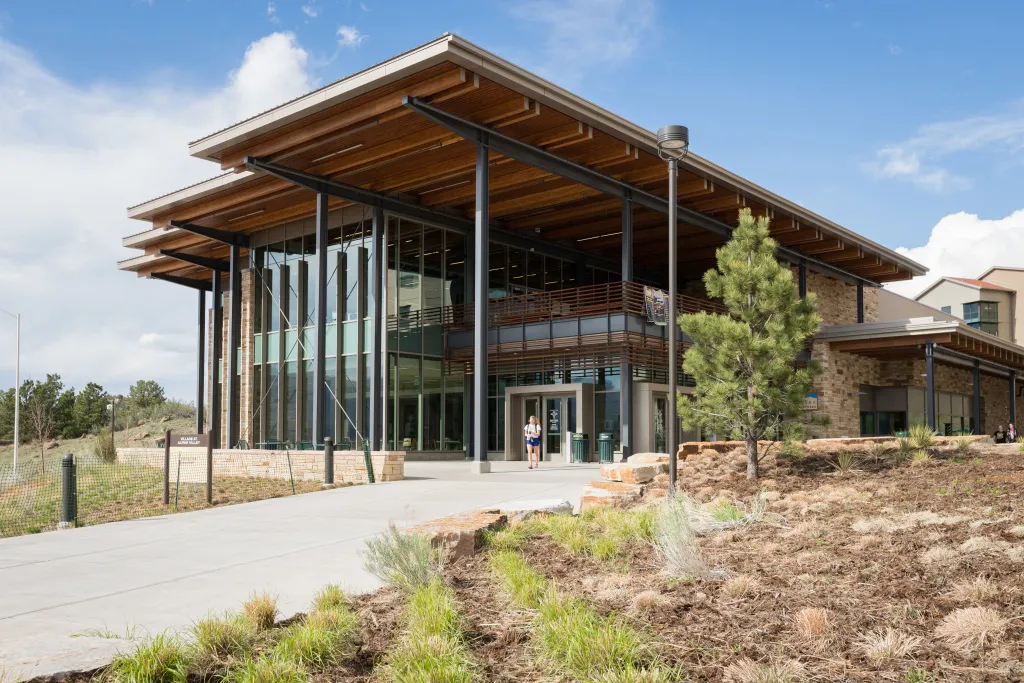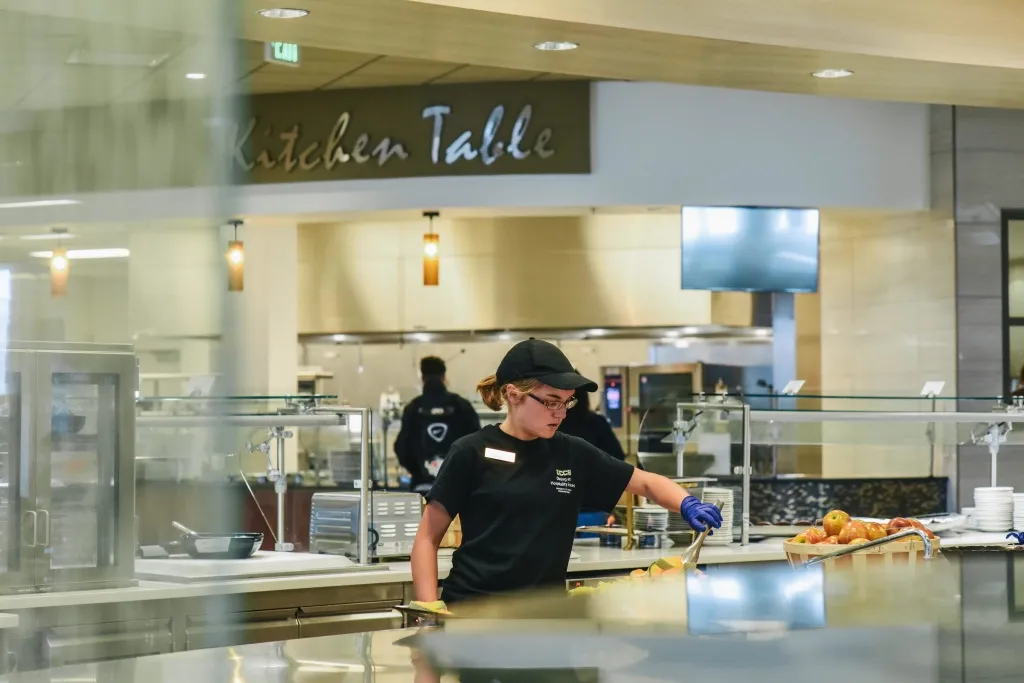
Nutrition Information
Menu
For information on the menu, please visit our menu website.
Environment Guidelines

These basic rules will help maintain a safe and healthy eating environment:
- Use provided utensils for specific food items. Do not use utensils between dishes to prevent cross-contamination.
- Please do not move any menu labels from their original placement, and if labels are not present, please notify a DHS staff member.
- All customers with food allergies and sensitivities are urged to use caution in the community setting of a dining hall.
- Communication is vitally important so If you have any questions, do not hesitate to approach a manager or student supervisor.
Special Diets & Food Allergies
Dining and Hospitality Services (DHS) uses Food Allergy Research and Education (FARE) as a primary reference. FARE develops comprehensive guidelines for identifying and accommodating students with food allergies. This program includes in-house staff training, customizable best practice guidelines, Red Cross training programs access, and student brochures and materials.
DHS works to identify ingredients that may cause allergic reactions for those with food allergies and instructs our culinary staff on the severity of food allergies. We label items with possible allergen-containing ingredients, but there is always a risk of contamination in large-scale food production operations. Customers concerned with food allergies need to be aware of this risk and take appropriate precautions. DHS also operates a small bakery that is not a “nut-free” facility. We are unable to guarantee the absence of cross-contamination with our baked goods.
Pre-Arrival Suggestion: Before freshmen orientation or moving to campus, contact the Executive Chef Jill McAllister at jmcallis@uccs.edu so you can discuss any specific needs or schedule a meeting. Once you arrive, please introduce yourself to the managers and staff so we may work with you. Please remember, if you do not make your food allergies known to us, we cannot assist you. We continually work to provide as much information as possible to enable you to make informed dining choices and work with healthcare professionals on campus.
Resources
Online Resources
Dietitian Services
Dietitian services are available at the Wellness Center. To learn more, please visit the Wellness Center website.